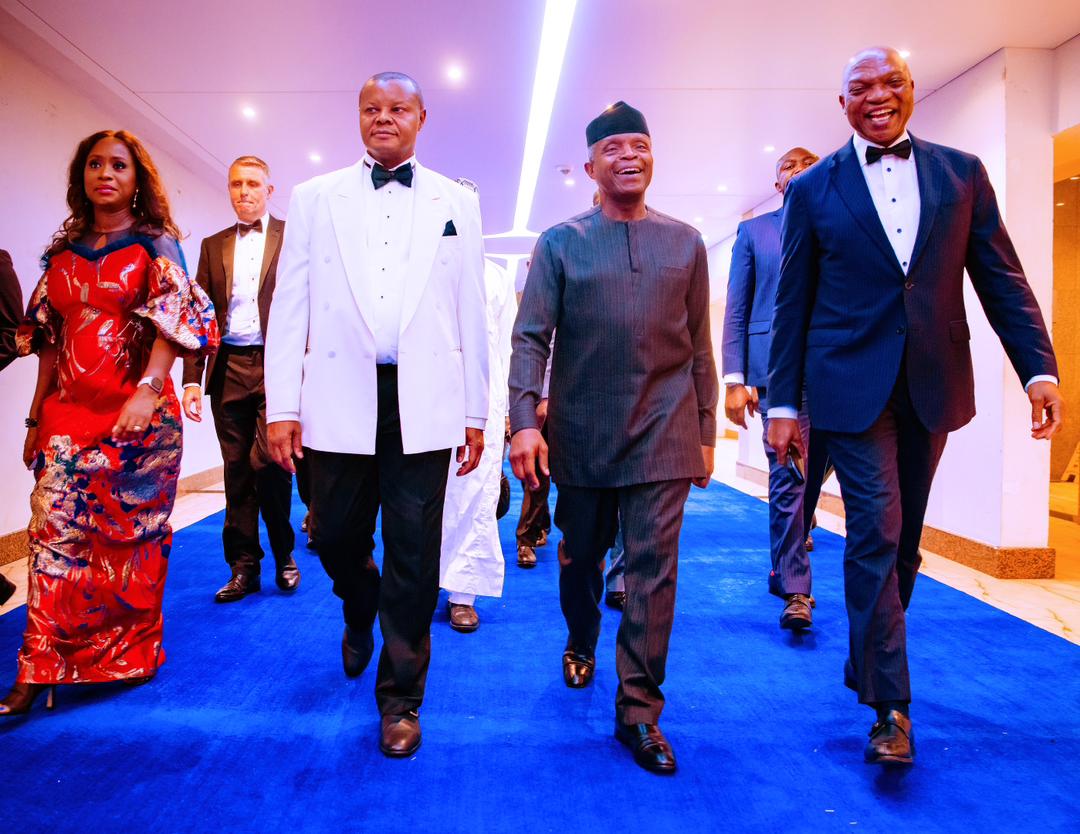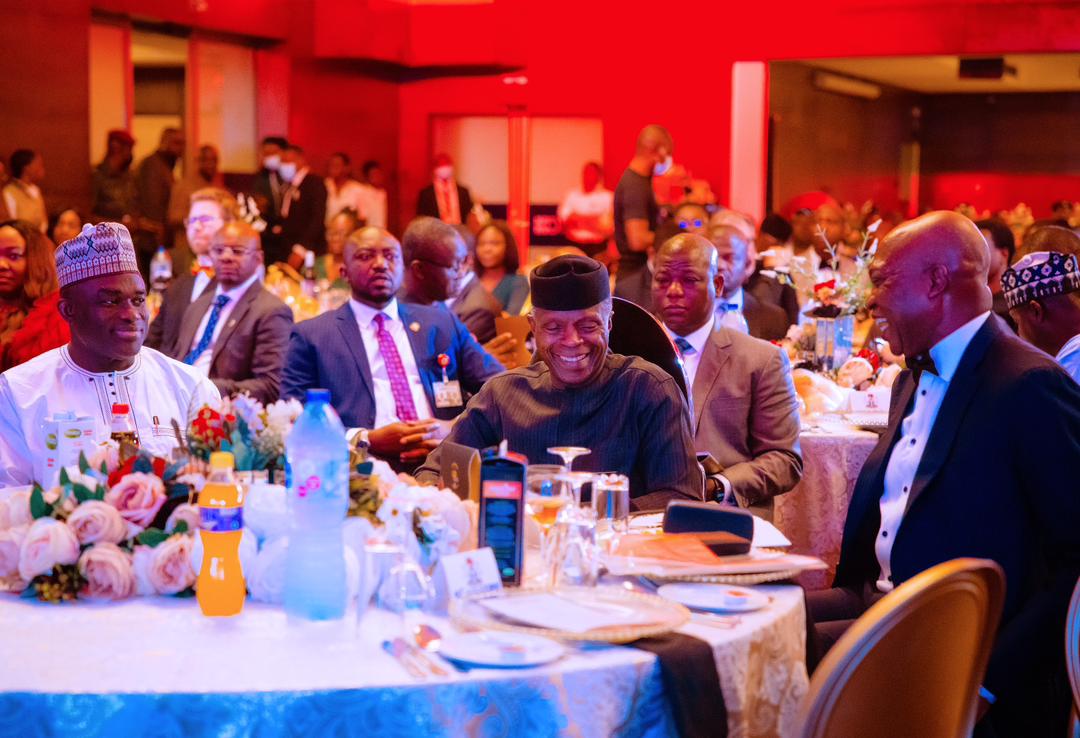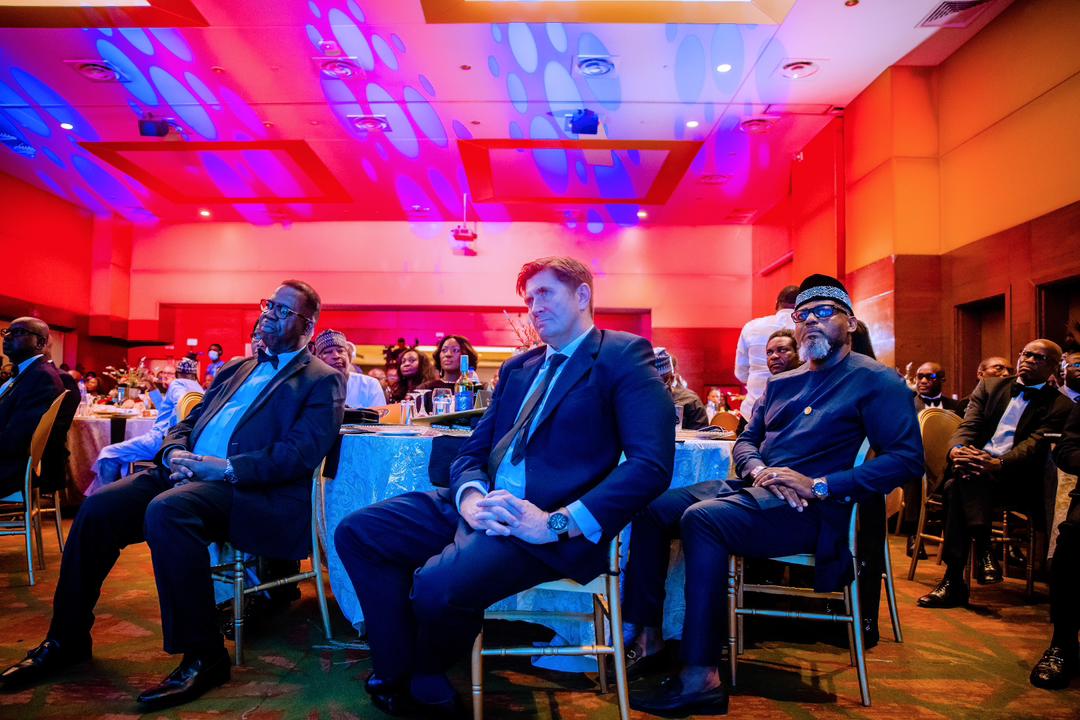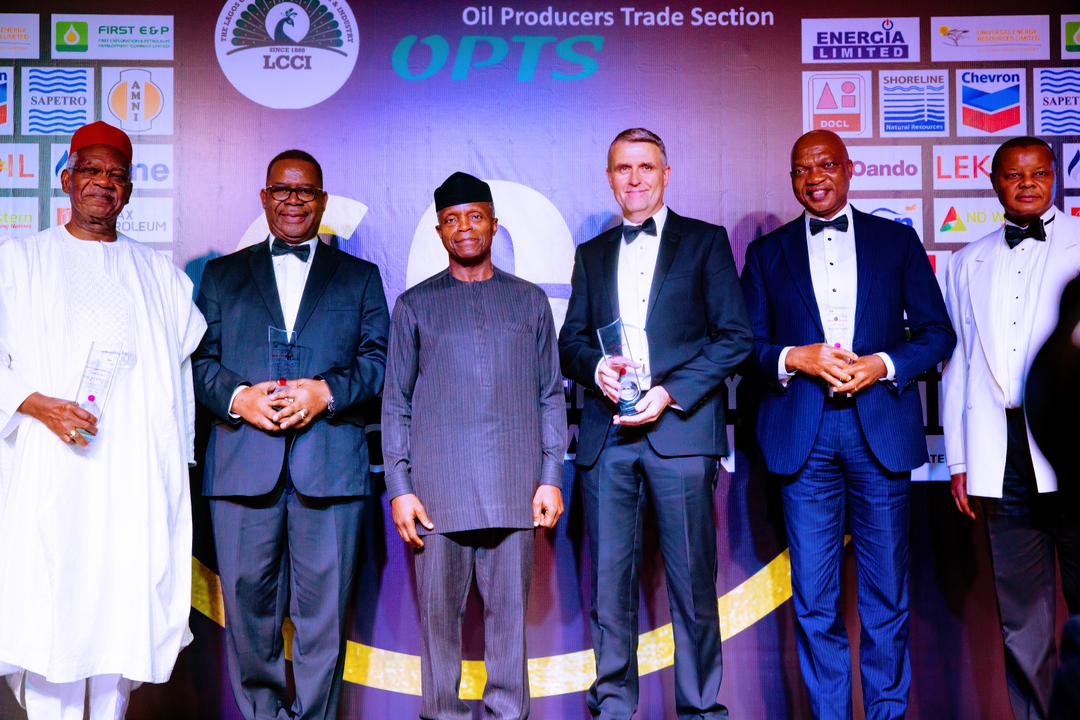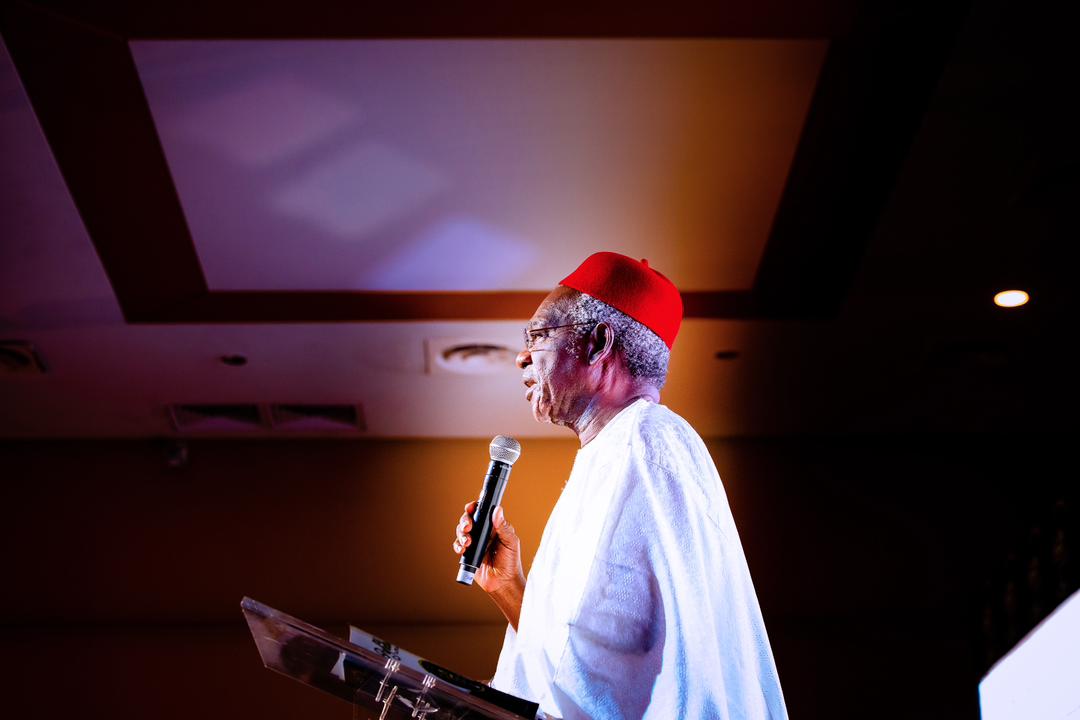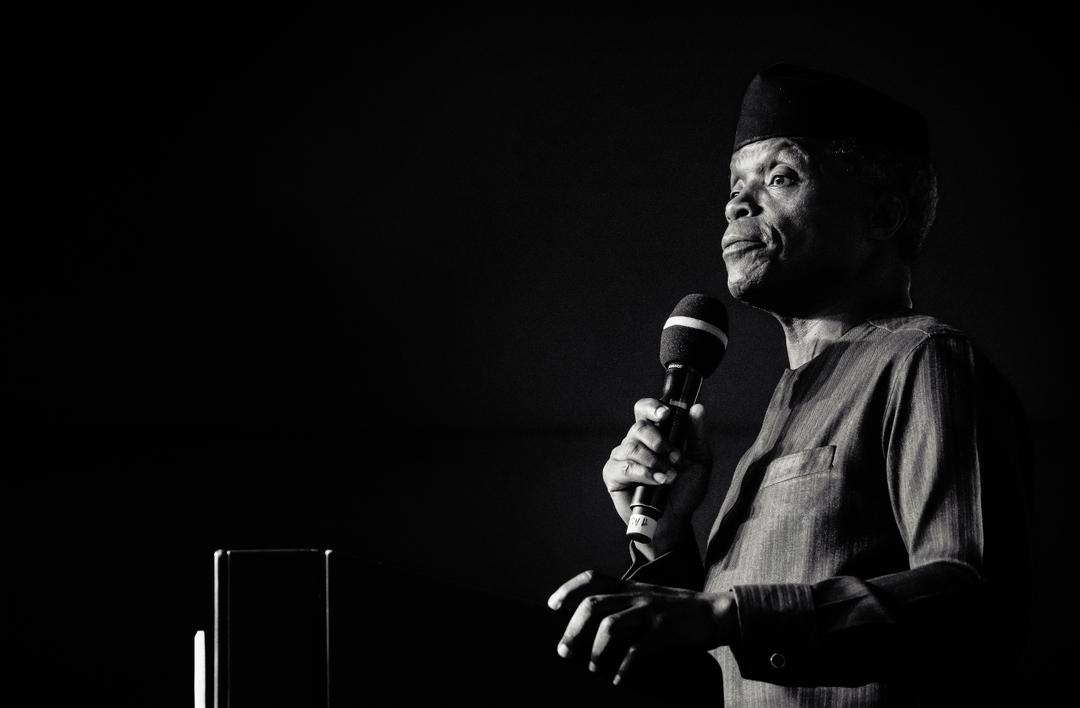60th Anniversary Celebration Of The Oil Producers Trade Section, OPTS
SPEECH DELIVERED BY HIS EXCELLENCY, PROF. YEMI OSINBAJO, SAN, GCON, VICE PRESIDENT OF THE FEDERAL REPUBLIC OF NIGERIA AT THE 60TH ANNIVERSARY CELEBRATION OF THE OIL PRODUCERS TRADE SECTION, OPTS, OF THE LAGOS CHAMBER OF COMMERCE AND INDUSTRY IN LAGOS ON THE 22ND OF SEPTEMBER, 2022
PROTOCOLS
First let me thank the Chair of the Oil Producers Trade Section, OPTS of the Lagos Chamber of Commerce and Industry, LCCI, and other members of the executive for the kind invitation to join you at this 60th-Anniversary celebration.
I was at the event in 2017 as a keynote speaker when you turned 55, here we are 5 years later. First, I notice that I am not the only one who has added more grey hair, some say it is on account of the challenges in the industry, but I think by now, I deserve to be some kind of honorary member of the OPTS. (General laughter).
The OPTS deserves to be commended for its outstanding role in the growth and development of our oil and gas sector in Nigeria and for the numerous social development projects undertaken by your members through the years. Well done indeed.
I have been asked to speak on the topic: “Nigeria Transitioning to Green Energy.” Now, this is a very wide subject and what I will do this evening is only attempt to highlight some problematic issues in the transition process.
We will all agree that the most consequential subject globally in the next few decades will undoubtedly be Climate Change. Already, it is evident from so many adverse climate occurrences, floods, desertification, rising water levels, and record high temperatures that there is clearly a global climate crisis. The obvious, if difficult solution to the crisis, is to stop carbon emissions and use green energy.
The staple wisdom is that coal and fossil fuels are major pollutants. That being the case, it is proposed that countries and corporations should gradually reduce the use of these high pollutants and instead use renewable energy such as solar, wind, and hydro and completely stop the use of these carbon emitters by the agreed target date of 2050.
Now most countries including Nigeria, of course, agree that we must reduce global emissions to zero, in our case, our target is by 2060. We are major victims of the effects of climate change, but there are a few important issues that we have flagged to our wealthier brother-countries in the global north who want to move at a quick pace towards the targets that have been set.
The first is that we, in the developing world, are faced with two, not one crises. One is climate change and the other is extreme poverty, the cause and consequence of which is energy poverty. Or the fact that lack of access to electricity for millions is a cause of deepening poverty in many developing countries, especially African countries.
The second is that African countries are the least emitters of carbon today, less than 1 per cent of cumulative Co2 emissions and even if we triple electricity consumption in African countries (aside from South Africa) solely through the use of natural gas, this would add just 0.6% to global emissions. So a lot of the flooding and adverse weather events that we are experiencing here are from emissions caused by the wealthier countries.
The third is that the defunding of gas projects in order to force gas-rich countries like Nigeria to stop using gas and use renewables instead is faulty. These proposals to ban the funding of fossil fuel projects make no distinction between upstream oil and coal exploration, and gas power plants for grid balancing. Also, no economy in the world has been known to use renewables, solely, to industrialize. Solar power simply does not have the base load capacity yet for industry.
Fourthly, stopping the use of gas means that we cannot use LPG for clean cooking stoves to replace the use of kerosene, firewood and charcoal which are dirtier fuels that are widely used for cooking and other domestic purposes, particularly in rural areas. The use of firewood means cutting down trees and of course desertification and then the loss of our carbon sinks. Our carbon sinks are possibly the best in the world, much more effective than carbon sinks in the Amazon and several other parts of the world.
The fifth is the double standards that wealthier countries have adopted on this issue. Today in the wake of the energy crisis, many European nations have made recent announcements to increase or extend their use of coal-fired power generation through 2023, and potentially beyond. These were coal plants at some point were said to have been decommissioned. The moment an energy crisis arose, these decommissioned plants were quickly brought back into use. This is in violation of their climate commitments, and analysis suggests that this will raise power sector emissions of the EU by 4% – a significant amount, given the high base denominator of EU emissions.
The sixth and perhaps most crucial point is that we must take quick and informed actions in our National interest. We must take the threat of no investments in fossil fuels sector including gas seriously. For example, many European and other global North countries are setting aggressive targets for use of electric vehicles and that means the banning of combustion engine vehicles.
Soon there may be only a few countries using combustion engines. It is also evident that while the Russia- Ukrainian war has shown again, the double standards in not allowing public funding for fossil fuel projects, the wealthier nations are still of the view that this is the correct policy and that even if public funding is to be allowed financing should not go beyond 2035.
So far, Nigeria’s response has been the Energy Transition Plan. A comprehensive, data-driven and evidence-based plan, designed to deal with the twin crises of climate change and energy poverty. We anchored the plan on key objectives, including lifting 100 million people out of poverty in a decade, driving economic growth, bringing modern energy services to the full population and managing the expected long-term job loss in the oil sector due to global decarbonization.
Given these objectives, the plan recognizes the role that natural gas must play in the short term and medium term to facilitate the establishment of baseload energy capacity and address the nation’s clean cooking deficit in the form of LPG.
Gas is of course critical to integrating a greater share of renewable energy in Nigeria’s energy mix. Also natural gas (methane) is an important chemical feedstock, especially for ammonia production for fertilizers.
To achieve these objectives by 2060, we would need $410billion or $10billion per annum above business as usual spending. Where do we get this from? In addition to conventional capital flows both from public and private sources, local and international, we also made the case that we should be on the G7 Climate partners list which should attract significant funding. In the past few weeks, I have held recent meetings with World Bank, US Treasury Secretary and only last week with the US Special Envoy on Climate Change, Sen. John Kerry. The subject of our discussion has been how to ensure that Africa’s largest economy, and of course, one of the biggest producers of fossil fuel is funded to transit in a manner that would work and make sense.
South Africa got about over $8million in order to decommission one of their coal plants, and we say that you cannot talk about a transition without adequate funding. Again, we have made the point repeatedly that we are not at all, the worst emitters and even if we triple our energy use today, we would still be the least emitters and pollutants.
It is also essential that we participate fully in the global carbon finance market, in addition to all of our other expectations for funding for the transition. So we think the Voluntary Carbon Markets can play a significant role in directing private capital into climate action.
How do they work? A developer sets up a project that avoids certain emissions. For example, methane capture from landfills or removal of carbon from the atmosphere by reforestation or replacement of diesel generators with solar power or with some other clean energy would also be an eligible project. The project is registered under a standard VCS, gold standard, and validation and verification are done by an independent body.
Carbon credits equivalent to the mitigation achieved are issued to the project subject to verification. The developer then sells the carbon credits to companies, governments or individuals seeking to compensate and or neutralize their emissions. Some Nigerian companies have already been doing lucrative carbon avoidance or removal projects that have yielded carbon credits. Amazon Energy was contracted to do a Gas Flare Down project for an IOC in Kwale and the IOC utilized the carbon emissions reduction for carbon credits.
Also given the escalating debt situations of many developing countries including Nigeria, especially in the aftermath of COVID-19 and the Russian invasion of Ukraine, I think we should also bring Debt for Climate Swaps into the climate finance mix.
Debt for Climate (DFC) Swaps are a type of debt swap where bilateral or multilateral debt is forgiven by creditors in exchange for a commitment by the debtor to use outstanding debt service payments for national climate action programs. The creditor can use the transaction as a contribution to its Nationally Determined Contributions – NDC. In order words, it is a win-win situation for creditors and debtors. So we can increase the fiscal space for climate-related investments and reduce our debt burden at the same time.
Let me conclude by saying that I think the private sector must up its participation in the transition to green energy journey, in particular, the OPTS. I think that you must be involved more actively in the conversations.
I suggest at least three ways to do so:
- Greater involvement in the crucial conversations about what an economically just transition to zero emissions should actually look like. That conversation is going on practically everywhere but we think that the Nigerian contribution to that conversation will be greatly enriched by the participation of the OPTS.
- The implementation of the Energy Transition Plan. For example, the off-grid solar space in Nigeria is becoming one of the most exciting in the world. We have programs such as the FGN’s Solar Power Naija. We are targeting 5million solar home connections including off-grids and mini-grids, and that will give 25million individuals power. We have made considerable progress and passed the 1million mark already. We also have the Nigerian Electrification Program with the World Bank Group and the African Development Bank and also the Rural Electrification Fund providing almost $1 billion in financing and subsidies to drive 10 million connections. We are also working on clear guidelines for on-grid solar before COP-27 in November to initially provide the structure for the rollout of at least 1,000MW of solar power. We are particularly pleased with the good work that All-On and Konexa have been doing with funding from Shell (one of your key OPTS members). We also have NNPC partnering with the Rural Electrification Agency to roll out solar mini-grids and Solar Home Systems across the country. We encourage OPTS to take the lead in solar to help drive improvements in our energy mix and also accelerate the transition to having “energy” companies not just oil companies.
- Getting involved in climate finance, the thinking around climate finance, especially the Voluntary Carbon Markets.
I must again thank the OPTS for the honour of joining this landmark celebration and I wish you a happy 60th Anniversary and more useful decades of service to the industry and to our nation.
Thank you very much.


